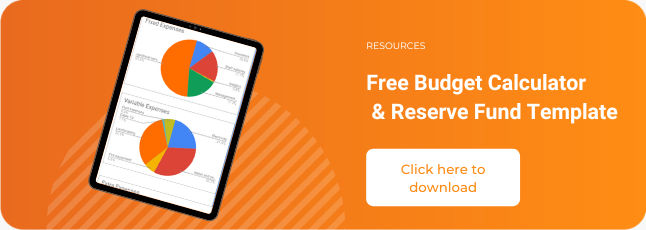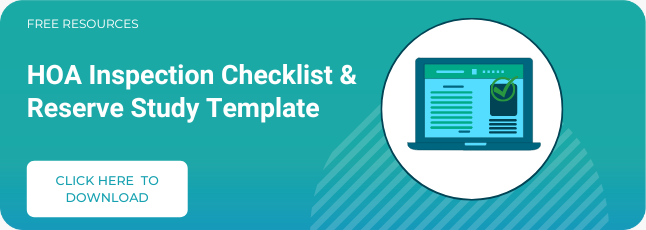Creating an annual budget is a challenging task, so it’s important to follow HOA budget best practices to ensure a successful budget for your community. We have put together the top 5 best practices to help you create the best annual budget.
HOA Budget Best Practice 1: Start Early
Committees
Depending on the size of your community association, the treasurer may be doing this alone. But if you can, create or get together your budget or finance committee. An important HOA budget best practice is to get people involved. The more people working on it and cross-checking it, the less likely it is for mistakes to pop up.
You should get your committee together at least 4 months before the end of the fiscal year. Then you need to get documents for the budget together.
Documents
You’re going to need at least one past budget, and bank statements for the past year, more if you can get them to start working on your budget. You should also get your projected income statement and your current reserve study.
Start by looking at your HOA’s current budget, and how much was allocated to what. Then analyze whether the budget worked, you need to have enough for all the repairs, and maintenance. And also managed to save the amount forecast in the budget. Next, review all the financial statements for the past two years to have a solid understanding of your community’s financial situation.
If you have been tracking your HOA’s income and expenses, then that’s a great asset when making your next annual budget. If you haven’t, then you should start as it will help you stay on budget.
HOA Budget Best Practice 2: Do a Reserve Study
The next thing to do is review the most recent reserve study. A reserve study is an in-depth study of a property’s components and its reserve funds, it needs to be detailed and it needs to be done by an expert. You need to make sure that your association’s reserves are properly funded and maintained.
Check any planned reserve projects and calculate them so you won’t need to find money in the budget for a special assessment later on. Having to charge your residents extra for an assessment never goes down well.
HOA Budget Best Practice 3: Walk Around
An important part of doing your budget is to know what maintenance needs to be done, and what is planned. If you haven’t already, you should do an inspection of your community. You can do that with other board members, your community association manager, or a professional inspector.
After doing a full inspection, you need to prioritize what needs to be done and when. It’s always nice to repaint the clubhouse, but it may not be a necessity. However, if the air conditioning sounds like a dying cat that’s urgent and has to be dealt with right now. Don’t forget to go through your review maintenance checklist and repair reports to get an idea of what may need maintenance in the coming year and include it in the budget. Use the documents you analyzed earlier to calculate how much your association needs to budget for the day-to-day running of the HOA or condo.
HOA Budget Best Practice 4: Check Contracts
The next step is to look at all of your community’s contracts. It’s important to know that you’re being charged the right amount and that you’ve got the best service provider on the market. This is important for all the services and utility providers, from landscaping to water.
Talk to your contract provider, and see if they plan to increase their fees. Then shop around and see if you could do better elsewhere. Remember, the lowest offer isn’t always the best. If you can then cancel the contract before the new budget begins, and find a service provider that gives you a better cost-benefit then that’s ideal.
HOA Budget Best Practice 5: Savings
Savings
The penultimate thing to factor in is savings. You should always budget to put money aside for the future, or for any unforeseeable emergencies. Of all the income that your community receives aim to put 20% into savings.
Fees
Finally, we’ve got homeowner fees. This is easy to calculate, it’s just operating expenses + annual reserve contributions = homeowner fees. This figure can then be divided equally among homeowners unless your community does things differently.
Recurring expenses
Your budget should be around 75% recurring expenses. That means utilities, insurance, and maintenance. That’s based on past years, including around a 5 to 10 percent increase to account for inflation. After that, you’ve got savings which we’ve talked about, and a little bit extra.
Wrapping Up
Our HOA budget best practices start with not waiting until the last minute. Start getting your committee together and all the documents you need at least 4 months before it’s due. Then analyze past budgets, and see if they’ve been good and what else needs to be added. If you have important maintenance to do, then include that in your budget. Then add how much you’re going to need in fees.
If you need help communicating with your committee, storing documents, and improving your community’s financial transparency you can use Neigbrs by Vinteum. We are an award-winning communication and management platform made for HOAs and Condos. The cherry on top is that we have an integration with QuickBooks to help community associations improve their accounting and financial issues. Set up your free demo and find out how we can help you help your community better.







